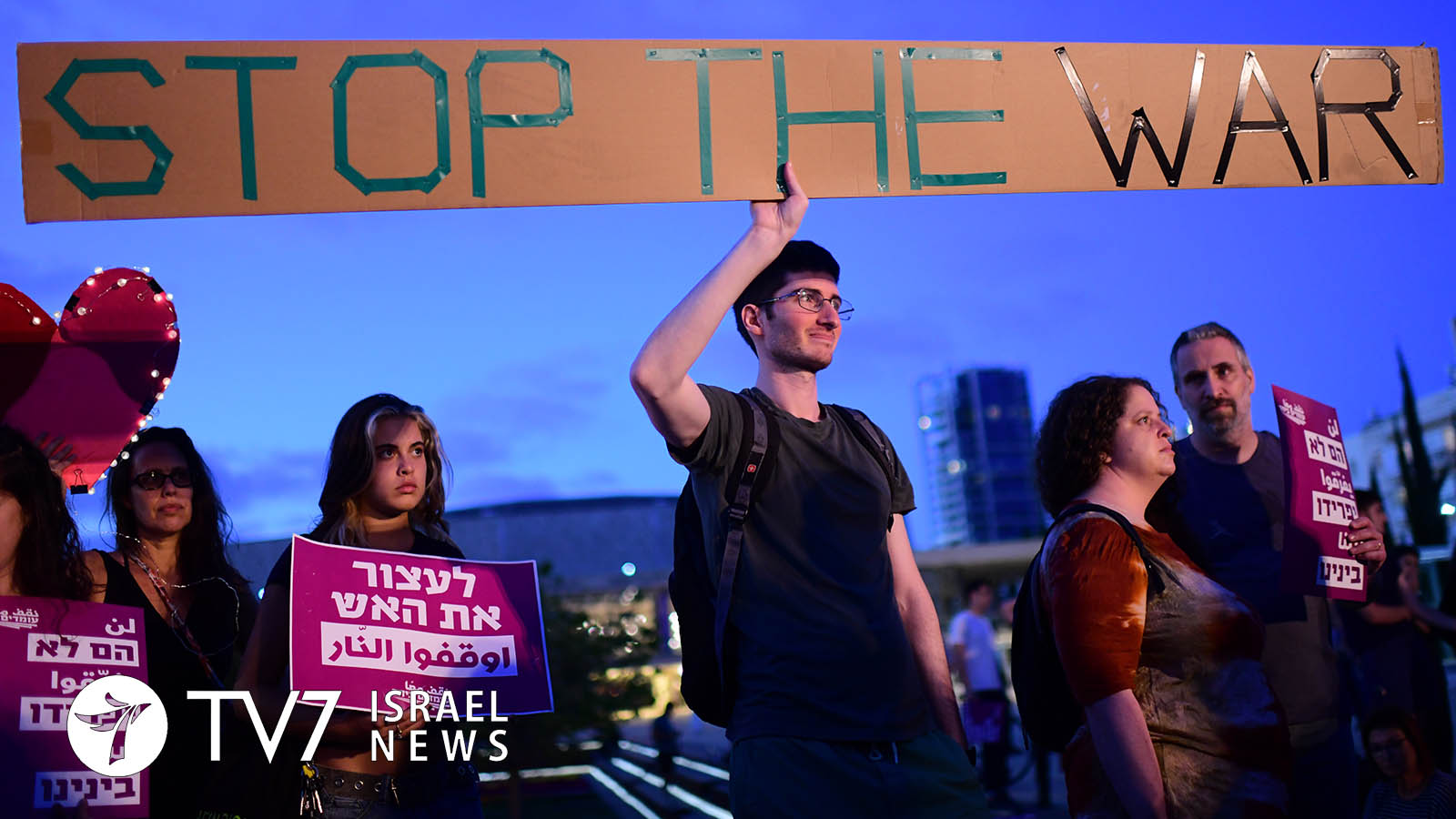Thousands of Israeli Jews and Arabs participated in a march in Tel Aviv in support of coexistence.
The event, organized by the “We Stand Together” and “Breaking the Silence” (BtS) movements, was held on Saturday night the day after a ceasefire was reached in the 11- day conflict between Israel and Hamas, that had been marked by unprecedented violent riots in mixed Jewish-Arab cities within Israel.
The mostly leftwing crowd chanted “This is all of our homes,” and “We stand together without hatred and without fear” as they made their way from Rabin Square in the coastal central city to a rally at the Habima Square. Others called out that “The answer to the Right is Israel and Palestine.”
The central theme was the promotion of government efforts to ensure peaceful coexistence between the country’s Jewish and Arab residents while agreeing to a Two State Solution to the Israeli-Palestinian conflict.
“If the last two weeks were hard for you, if you felt despair – we are here to say, don’t despair, organize,” Jewish-Israeli Itamar Avnery of the “We Stand Together” group told those gathered. Member Sally Abed, who identified herself as “a Palestinian citizen of Israel,” accused the government of racism and pandering to the “settler elite.” She said she refused to “return to the routine” that included “second-class citizenship” that included “institutional discrimination, police violence and political arrests.”
Other speeches were delivered by politicians, former IDF soldiers and notable authors.
“We do not accept the dichotomy of nationalism. Our path forward is together. Jews and Arabs together… There are two nations here. Both of them have a right to self-determination. Both deserve peace and equality,” said Member of Knesset (MK) and leader of the predominantly Arab Joint List, Ayman Odeh.
He said the rally was a sign of hope despite having heard “politicians and security officials speak about another round of fighting in a few months or years,” because “Jews and Arabs together will dispel the darkness. You are the light.” The respect of the “national identity” of both Jews and Arabs is “a path forward” and “a joint future for us all,” he said.
MK Tamar Zandberg of the leftwing Meretz party commented during her address that, “It’s no coincidence that the violence broke out just when we began to feel that maybe Jews and Arabs can cooperate in politics too. Some people wanted to sabotage this vision, they wanted to continue sowing hatred and incitement and violence.” The rally, she said, served as a response to that, saying, “We are telling them – enough, no. Now too we can and must establish a different government in Israel that will not encourage hatred, will not incite, will not separate Jews and Arabs.”
“These past few days have shown us how life in this country can look like – a nightmare. We don’t want to start waiting for the next war, but to change direction toward peace – to live together in true partnership,” stressed MK Zandberg.
A member of BtS, a controversial NGO of veteran IDF soldiers critical of Israel’s continued presence in the West Bank, also spoke at the event. Former Nahal Brigade combat soldier Ariel Bernstein accused the country’s leaders of doing nothing “to move ahead a diplomatic solution” since the last conflict with Gaza 7 years ago. “They demand that we bury our head in the sand and think that the current situation is fine and normal. But there is nothing normal about a military dictatorship, a suffocating blockade and apartheid in the territories,” he alleged.
Left-wing Israeli Jewish activist and novelist David Grossman, whose son was killed during his military service in the 2006 Second Lebanon War, and Arab author Awdah Bishārāt also spoke at the rally.
Former Deputy Mayor of Nazareth an ex-Director of the Histadrut Labor Union’s Equality Department Saheil Biab expressed concern that to the Times of Israel “that all the progress we made over decades” including “the dream of the common struggle of Jews and Arabs for peace, equality and justice” may have been destroyed due to the eruption of internal violence.
Jewish Israeli Yonatan Hefetz told the news site that he and others have heard “a lot of anger” while speaking to Arab friends in the West Bank, Jordan and Egypt since the outbreak of Operation Guardian of the Walls. “We try explain what is happening over here,” he said, adding that he “disagreed with some of the terms they were using like apartheid and ethnic cleansing. I think they’re using those words due to American influence. Those terms are coming from America.”
Similar demonstrations of solidarity and coexistence have been held throughout Israel over the course of the past two weeks, including an earlier march on Saturday of some 200 people marched in the nearby mixed city of Jaffa.
Meanwhile, there has also been a resumption of protests against Prime Minster Benjamin Netanyahu, who is on trial for corruption charges. Hundreds demonstrated outside his official residence in Jerusalem Saturday night, to demand his resignation amid added allegation that he intentionally sought to escalate the conflict with Gaza for his own political purposes.
It is important to note two outstanding examples of Israeli-Arab coexistence in recent days.
A 58-year-old Arab Christian woman, Randa Aweis, is now recovering from the life-saving donation of a kidney from a 56-year-old Jewish man, Yigal Yehoshua, who died of severe injuries sustained during an attack by an Arab mob in the mixed city of Lod. Yehoshua’s wife Irena was cited by Channel 12 as describing her late husband as “a paragon of coexistence.”
In related developments, the organs of 17-year-old Arab Israeli Muhammad Mahameed Kiwan, who was shot to death under disputed circumstances possibly involving the police, were donated to 6 patients, of whom 5 were Jewish.
“It is true that my son died, but I want to let people live,” his father Mahmoud told the Walla news website, underscoring, “Every person deserves respect, and I respect everyone – whether Jews or Arabs.”
